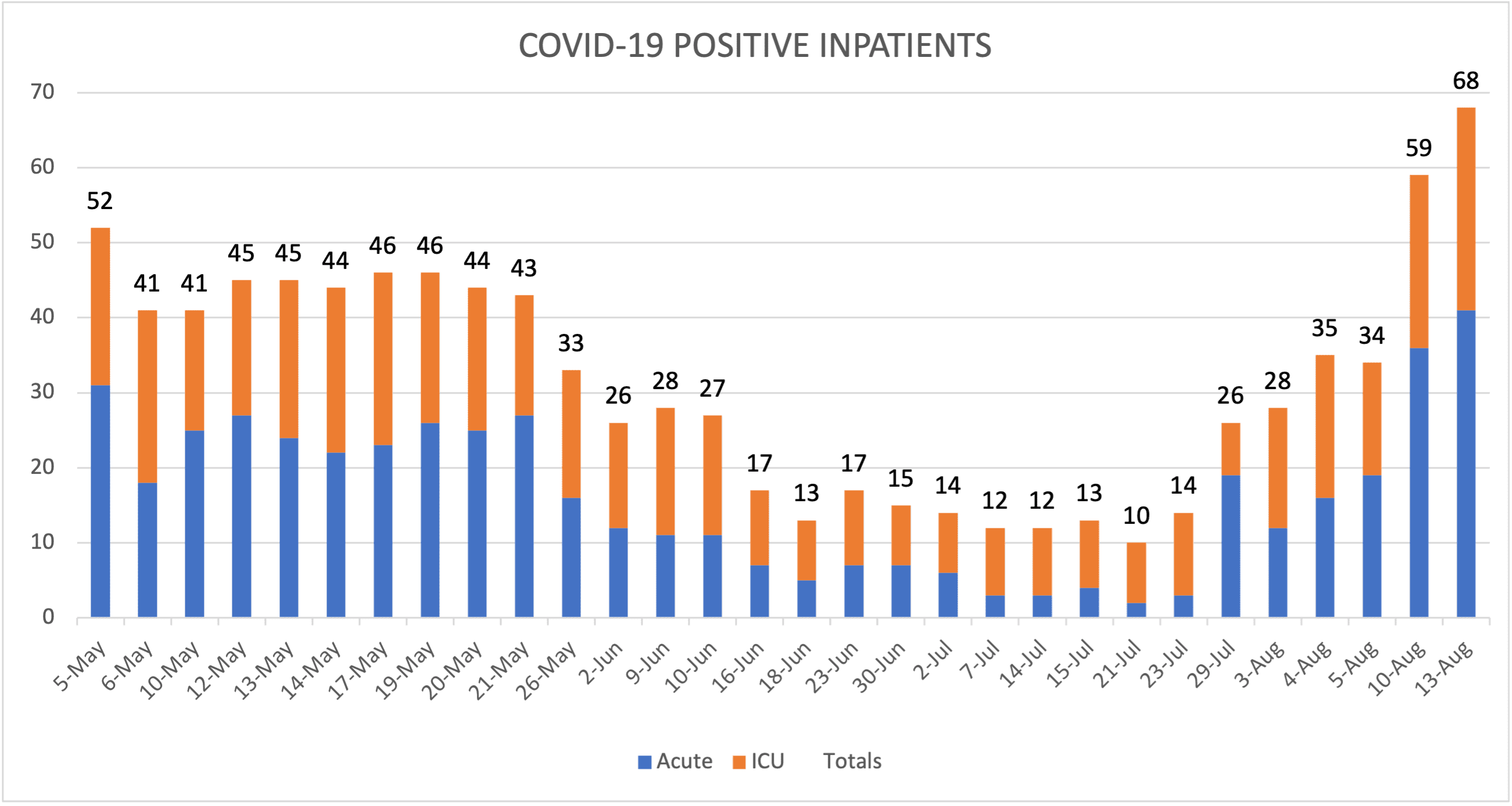Our top public health officials have been saying for months that vaccines remain our best hope for ending the pandemic — and they’re right. All three vaccines are available, safe and highly effective at reducing the risk of serious illness or death due to COVID-19. Unfortunately, many people still are reluctant to receive the vaccine or face additional barriers to accessing vaccination.
Increasingly, government officials and employers are requiring it. This week, Gov. Jay Inslee issued an emergency proclamation requiring Washington state employees and healthcare personnel to be fully vaccinated by Oct. 18. UW Medicine also has made vaccination a requirement for employees, and we will be working in the coming days and weeks to align our policy with the governor’s message, which we fully support in the interest of public health and the safe delivery of healthcare. Because of the elimination of the philosophical exemption, we will be extending the UW Medicine vaccination compliance deadline to Oct. 18 as well. We will provide more information on these changes as soon as possible.
In addition to vaccination, we can protect each other by continuing to wear masks indoors and following all the standard safety protocols that proved effective in reducing previous surges. Right now, the case numbers are concerning. The delta variant, being much more transmissible, is spreading quickly — especially among unvaccinated populations — and we’re again seeing very high numbers of COVID-19 patients across our system. In fact, the number of new cases per day locally is now exceeding what we saw during last spring’s surge and is fast approaching territory we haven’t seen since last winter.
Now is the time to get vaccinated. For those who already have taken that step, the question of boosters continues to be raised. The CDC’s Advisory Committee on Immunization Practices (ACIP) made a recommendation this morning to provide a third vaccine dose for people who are immunocompromised. We are awaiting details on these recommendations and will move quickly to provide these to our patients and healthcare workers.
Today’s update also includes:
- Local/National/Global Epidemiology
- CDC Vaccination Update
- Guidance for COVID-19 Vaccination for Providers
UW Medicine COVID-19 Vaccination Summary

Local/National/Global Epidemiology
King County: Public Health – Seattle & King County is reporting 118,883 total confirmed cases and 1,705 deaths as of Friday, Aug. 13. The number of new positive tests is currently at 151.9/7 days/100,000 people (community transmission level = high).
Washington: The Department of Health reports 457,647 confirmed cases and 6,215 deaths as of Wednesday, Aug. 11. Of the 8,539,971 people who have been tested, 5.35% have been positive.
United States: The Centers for Disease Control and Prevention reports 131,917 new cases on Thursday, Aug. 12, 36,268,057 total COVID-19 cases and 617,096 deaths.
Global: The WHO COVID-19 Dashboard as of Friday, Aug. 13 reports 205,338,159 confirmed COVID-19 cases and 4,333,094 deaths.
CDC Vaccination Update: The CDC released an updated recommendation for COVID-19 vaccination for pregnant people, those who are breastfeeding and people who are planning to become pregnant. Multiple national organizations (including the American College of Obstetrics and Gynecology and the Society for Maternal and Fetal Medicine) have strongly recommended vaccination for these same groups. The support of the CDC will hopefully provide additional support for the decision to get vaccinated among these at-risk groups of individuals.
Guidance for COVID-19 Vaccination for Providers: The CDC has excellent materials to assist clinicians when patients ask about medical reasons not to get vaccinated. The best reference for this is the CDC’s “Interim Clinical Considerations for Use of COVID-19 Vaccines Currently Authorized in the United States.” For a quick reference for possible contraindications to vaccination, you can go directly to Appendix B near the bottom. As you will see, the vaccines are indicated for nearly all patients over the age of 12 with very rare exceptions.
As the above numbers indicate, the pandemic is not over. The delta variant is driving case numbers to concerning levels in unvaccinated populations, including those under 12 who can’t be vaccinated yet. In response, UW Medicine is again escalating activity in our Emergency Operation Center (EOC) and revisiting all our recent policy updates to be sure they align with our evolving reality. Yesterday we let you know that we are again reducing the number of non-elective procedures to create more space in UW Medicine hospitals.
Unfortunately, all of this is happening just as we were starting to feel more comfortable in public or with small groups indoors. As always, I remain optimistic that we can contain this latest surge, but not if we don’t all make good decisions for our families, friends, co-workers and communities. That means getting vaccinated, wearing our masks indoors (again) and adhering to the safety protocols we’ve seen work before. As we face this new surge I am getting asked when and how will this all end. To be honest, I am not 100% sure, but I think it will look a lot like what Ed Yong describes in his most recent article (which I highly recommend reading) in The Atlantic. It will end, in a way, but COVID-19 will not likely disappear like we once hoped. I know it’s frustrating to be in this position yet again and to face an unclear near future, but all we can do is look ahead and take care of each other while continuing to provide the best possible care for our patients.
I’ll be off for the next two weeks to spend time with my family. You’ll be hearing from some of the other infectious disease physicians who work on the COVID-19 response team while I am away. I want to take a moment to thank the incredible UW Medicine Communications team members who have been my partners throughout the whole response: Susan Gregg, Tina Mankowski, Steve Butler, Leigh Tucker and Glenn Bieler. They have worked tirelessly behind the scenes to make sure we are sharing as much information as possible with the UW Medicine community. Thank you for your patience, collaboration and ongoing support as we work through the current challenges.
Sincerely,
John Lynch, MD, MPH
Medical Director, Infection Prevention & Control
Associate Medical Director, Harborview Medical Center
Division of Allergy & Infectious Diseases, UW School of Medicine

